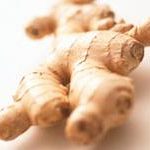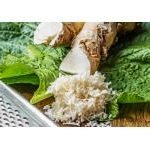NAC is great for dissolving and loosening mucus, so it is commonly used for chronic bronchitis, COPD, hay fever, and respiratory disorders.
Let’s turn the spotlight on N-acetyl-cysteine, an antioxidant produced by the body and commonly referred to as NAC for short. NAC plays a role in detoxification and can neutralize free radicals that damage DNA and healthy cells. It is one of the most powerful antioxidants known to man.
NAC is great for dissolving and loosening mucus, so it is commonly used for chronic bronchitis, chronic obstructive pulmonary disease (COPD), hay fever, and respiratory disorders such as cystic fibrosis and COPD. It is also used for treating some forms of epilepsy; ear infections; complications of kidney dialysis; chronic fatigue syndrome (CFS); and an autoimmune disorder called Sjogren’s syndrome.
It is also used to treat or prevent more familiar conditions such as preventing sports injury complications; radiation treatment; increasing immunity to flu and H1N1 (swine) flu; as a hangover remedy; and for detoxifying heavy metals such as mercury, lead, and cadmium.
One study done on rats showed that rats with a NAC diet had less cellular damage from cancer-causing substances and fewer carcinogen-induced lung, colon, and bladder tumors compared to rats fed on a normal diet. Other studies showed that NAC supplement slows tumors and metastasis.1
One of its biggest benefits to city dwellers is its ability to protect against toxic aldehydes that enter the body through cigarette smoke and pollution. This fact alone should make it a mandatory addition to your supplement routine for urban dwellers and smokers.
Lastly, one of the keys to a healthy immune system and for cancer prevention is to maintain high levels of glutathione in the body. Your body produces its own glutathione, but bad diet, pollution, toxins, medications, stress, aging, infection, and much more all deplete your levels of glutathione. Unfortunately, supplementing with glutathione doesn’t really help. Fortunately, there are alternatives. Supplementation with N acetyl cysteine (NAC) has been proven to substantially raise the body’s glutathione levels.
Suffice to say this antioxidant packs a big punch! Learn more about natural antioxidants.
Study Source:
(1) De Flora S, Cesarone CF, Balansky RM, et al. “Chemopreventive properties and mechanisms of N-Acetylcysteine. The experimental background.” J Cell Biochem Suppl. 1995;22:33-41. Reference Link
Other References:
— Memorial Sloan-Kettering Cancer Center: Reference Link
— WebMD: Reference Link









Can NAC increase brain levels of mercury
Hi,
On page 83 of Dr Russell Blaylock’s book ‘Health and Nutrition Secrets That Can Save Your Life’, he states:
“recent evidence indicates that NAC may actually worsen the neurological effects of mercury by increasing brain levels of the toxic metal’ (Quid D. Cysteine metabolism and metal toxicity. Alter Med Rev 3(1998): 262-270)
“It does this by binding to mercury in the blood and tissues and redistributing it back into the nervous system, acting as a carrier for mercury. Since no-one has shown that mercury, when bound to NAC, is harmful, I would recommend a limit of 500mg a day for an adult.
“It has been proposed that, to prevent NAC chelated mercury from entering the brain, one might increase the intake of branch chained amino acids in the diet…. Because cellular glutathione is so vital to cell function and protection, and NAC is one of the more efficient ways to increase cellular glutathione levels, it should be used, but in lower doses, and in conjunction with the branch chained amino acids.
“I would recommend taking limited amounts of NAC during therapy, until this controversy is settled – 500mg daily after age eighteen”
So my question is: Has this ‘controversy been settled’, and would you give your opinion on all of this?
Thanks once again for your time.
Earlier concerns over NAC
Earlier concerns over NAC causing mercury to accumulate in the brain and kidneys, as can occur with L-cysteine, now appear to be unfounded. The initial concerns were opinions only, based on L-cysteine research, not NAC research. Still, some clinicians feel that symptom worsening occurs with the use of large doses of NAC (over 300mg per day), especially if patients already have elevated levels of L-cysteine. If L-cystiene levels are elevated, cystiene containing products such as protein powders should be avoided.
copd
I was diagnosed COPD with bronchiectasis for almost 6 years now after having coughed daily for all the previous years. Amoxicillin and Rulide failed to work on this flair up so am on ciprofloxacin, So much time and money is being spent here in NZ making sure that the doctors and nursing staff are treating patients but yet nothing is happening,if not for a herbal medicine i wont be able to get rid of this disease.